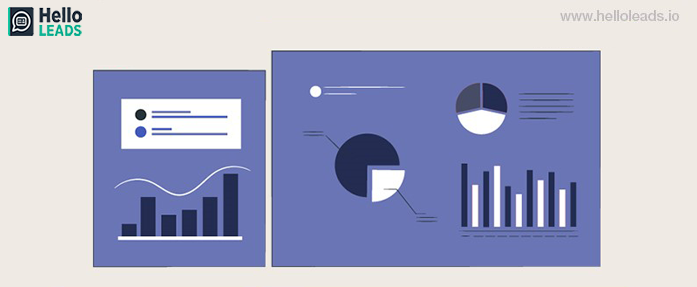
Many small businesses have started using CRM to improve their sales and productivity. In the last five years, CRM usage has been increased from 55% to 75%.
Over thousands of CRMs in the market, with hundreds of features and functionalities, aids in running a successful business. CRM software not only helps you to solve the problem of tracking and connecting with customers but also helps in getting all your leads in one place through integrations and other means.
CRM software lets your small business collect, analyze, and retrieve all the vital information associated with the customer base and manage them with ease. All CRMs possess a few standard core features and many other which are peripheral. Not every feature will be useful for you and for your team to manage the leads. However, here are the top 10 essential features that you should have in your CRM tech stack.
- Contact management
- Lead management
- Email integration
- Document management
- Workflow automation
- Reporting & analytics
- Sales forecasting
- Customization
- Social media
- Third-party integration
1.Contact management

CRM’s major function is to maintain all the information of the leads and customers in a single place. One of the important information about the lead is their contact information.
Contact management involves storing customer’s contact information such as names, phone numbers, addresses, and social media account links in a quickly searchable and retrievable manner. This information will come in handy when you want to reach your potential customers, any time and from anywhere.
2. Lead Management
Lead management is one of the vital functionalities, every business need from their CRM. It is also important to manage all your leads under one roof to convert your potential leads into customers. Leads are those who have expressed some level of interest in your product or offering but have not been qualified to determine if they fit the ideal buyer persona. Your CRM should be able to help you to track and manage such leads to convert them into paying customers.
CRM software assists in capturing details of leads from various channels, including phone calls, web forms, social media platforms, and emails. Lead management functionality makes sure that you don’t lose any leads and also ensures that you score and qualify leads correctly. This functionality also tracks the progress of customers and leads through the sales cycle and helps decide on marketing initiatives for nurturing them. Lead management helps in improving the efficiency and productivity of the sales team by focussing on the right leads at the right time.
3. Email integration
Email is the preferred channel for an effective B2B communication. Emails also serve as a centralized hub for internal cross-collaboration. So, it makes sense for integrating with email clients such as Gmail, Outlook and, Yahoo.
Email management offers the ability to send bulk emails, plan email campaigns as a part of a marketing initiative, track email conversations with clients, and send automated emails to customers for events such as birthdays and anniversaries through the integration with calendars.
4. Attachments and Document Management
Attachments and documents in a centralized location with colleagues or clients directly from document management let you create, collect, store, access, and share attachments to the CRM system thus making it easier for everyone involved to access information. Today you need to have the facility of attaching images, photographs, PDF documents, spreadsheets to leads that you have to improve productivity.
To improve security, you can set document access and edit rights. Further, version history lets you access the previous versions of any file.
5. Workflow automation
CRMs can facilitate optimization by allowing you to automate repetitive tasks such as following up with leads, raising invoices, and sending emails by creating workflows that trigger actions or send follow-up reminders for the next actions. Once the tasks are completed, notifications are received and reminders are notified if you need to input data manually. Optimizing workflows helps salespeople to avoid duplicate jobs, saves time, and ensures that the right actions are completed at each stage of the sales process.
6. Reporting & analytics

Reporting and analytics are key features of CRM software that are required across all major business functions that CRM supports—sales, marketing, customer service, field service, e-commerce, and more. It lets you get routine summary reports of sales figures or sales representative performance (e.g., on a daily, weekly, monthly, etc., basis).
It helps sales employees to perform daily tasks better and the sales leadership team to make more accurate business decisions. It also helps in tracking metrics such as profitability, rate of customer retention, and effectiveness of marketing campaigns. Reports and dashboards provide a high-level view of how a business is coping up with different metrics. This feature also lets you share reports with different teams to make collaborative data-driven decisions.
7. Sales forecasting
Forecasting in CRM predicts your future sales figures based on data from your current pipeline based on present and past data trends. For example, do you want the ability to use your existing data to make predictions about upcoming quarters and even new territories? Forecasting functionality puts your data to work for you, empowering you to make objective and informed decisions about the future of your company. Sales forecasting may also anticipate market changes to mitigate your business risks.
8. Customization
Every business has its unique challenges with the customers having their own unique needs. Some CRM solutions let you choose which features to include in your package, and some also allow you to customize basic areas, such as with the ability to add contact fields, choose which data to show on your dashboard, and allow you to create custom reports. You can also customize with extensions, plugins, and other add-ons to expand your software’s capabilities.
9. Social media

A CRM with built-in tools for performing social media tasks and social media monitoring features can save the time of your marketing team since there is no need to switch platforms to perform the essential task of monitoring your company’s social media.
10. Third-party integration
Connecting your CRM software to other solutions you already use can save you lots of time and money. The list of CRM features would not be complete without mentioning integrations. If you use different kinds of software like – ERP, BI, HR, Financial Software — you’ll want to be able to integrate it with your CRM. Integrating other software into your CRM allows for added functionality and streamlined operation. Most CRM programs offer third-party software integrations; the key is choosing one that’s compatible with the software you use and should be easy to implement.
CRM software can be a useful tool for businesses of all sizes, but it’s important to select a truly effective CRM platform that can scale with your business needs. If you look for the above 10 features in CRM software before you buy, you can’t go wrong.
Share this blog :











Leave a Reply